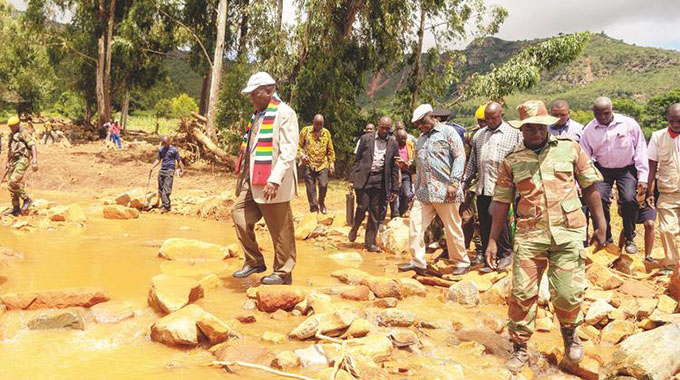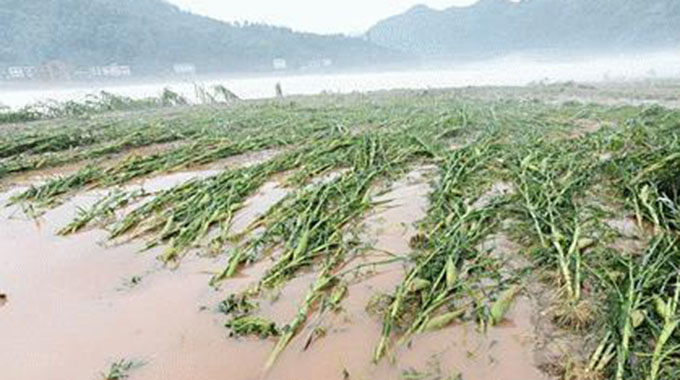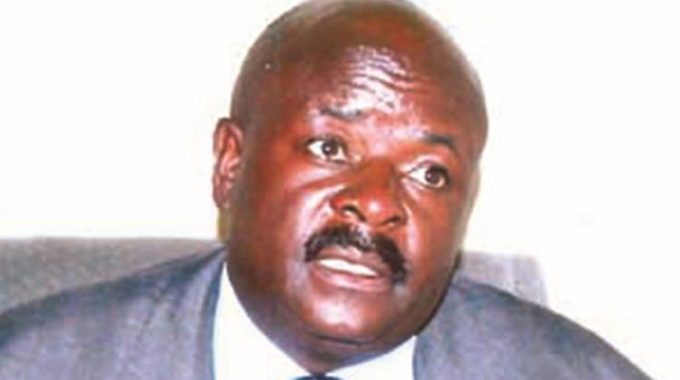ED’s challenge to multi-task

Trevor Shiri Correspondent
Zimbabweans are a curious lot. They mourn and groan always. Often times, without just cause, but simply the urge to — apparently.
Some people cannot help themselves, especially those whose pre-occupation is to obsess over the President’s every move, word and action.
Granted, President Mnangagwa is the Head of State and Government.
He is the Commander in Chief of the Zimbabwe Defence Forces.
He is a public figure. In any polity, such high offices as that of the Presidency comes with piercing scrutiny.
However, such scrutiny in Zimbabwe now borders on obsessive politics of negative criticism.
Nothing constructive, just pure derision of all the President’s words, deeds, omissions and commissions.
Of late, as a result of Cyclone Idai, there is a misplaced confluence of thought, particularly in opposition circles, surrounding the President’s travels.
Some have gone on to enumerate that he has travelled abroad 68 times in 15 months. Quite a statistic to a layman. Looks dramatic. Looks profligate. But wait a moment. Rewind to November 2017, and beyond.
Zimbabwe was a pariah State under the old dispensation.
In the First Republic, former President Robert Mugabe successfully alienated Zimbabwe from the community of nations.
He pulled Zimbabwe from the Commonwealth of Nations.
He pursued an aggressive foreign policy against the West in response to their negative response to the Fast Track Land Reform Programme.
The diplomatic shadow boxing between Zimbabwe and the country’s erstwhile coloniser, Britain, was franchised by London, and in no time, the European Union (EU) and the United States were literally in a diplomatic war with Zimbabwe.
Mugabe dug in. Lines of credit dried up. Diplomatic relations were broken.
Zimbabwe could not service its international debt. The local debt ballooned too.
The economy was on its knees, literally. Inflation ran riot.
Zimbabwe was in no man’s land, talking of trillions and quintillions.
The country adopted the multi-currency basket, whose anchor currency was the US dollar.
Things stabilised for a while. But truth of the matter is that Zimbabwe was not exporting enough. Foreign currency depleted. This is the economy ED inherited.
To get Zimbabwe out of this cesspit, President Mnangagwa consciously, and deliberately adopted the “Zimbabwe Is Open for Business,” mantra.
The open door foreign policy was principally aimed at widening Zimbabwe’s friends across the globe, not only with the East.
The idea was, and still is, to mend Zimbabwe’s foreign relations with the country’s erstwhile enemies. To the President, it is better to have many international friends, than enemies.
To get Zimbabwe ticking again, the President had to, and still needs to travel, mending broken relationships, creating new ones, and indeed, strengthening existing ones.
All this with the ultimate aim of re-integrating Zimbabwe into the entirety of the community of nations.
This is precisely what the President has been doing.
He has not been gallivanting as some opposition Goebbels would want us to believe.
The man is at work. He is working to get Zimbabwe up and running again.
It is also lost on the obsessed critics that, President Mnangagwa is a new President, who is a few months into office.
Naturally, the man has to open lines of communication, explaining the new trajectory. Articulating his vision. Enunciating the new Zimbabwe and where it wants to go. It is no holiday. It is all in a day’s work.
The President’s critics went as far as chastising the President for travelling to the United Arab Emirates (UAE) to marshal the necessary investment needed to re-ignite our economy.
In their jaundiced thinking, the President should not have left for the UAE at a time that Cyclone Idai was said to be advancing towards Zimbabwe.
In their thinking, the President had to suspend all programmes, stay at home and wait for the cyclone so that he could be viewed as a caring leader.
The foregoing line of thinking is defective.
It falsely presupposes that, if the President had not gone to the UAE, somehow he could have stopped the cyclone — itself a monstrous force of nature — unstoppable.
It decimates without respite. Zimbabwe is in mourning after the cyclone killed no less than 300 people and decimated homes.
May their dear souls rest in eternal peace.
The President has a country to run. A country with many people in all the provinces.
He has an onerous task, trying to balance the competing interests and demands of a restive populace.
He has no luxury of armchair critics to focus on one thing at a time.
He has to commiserate with the bereaved victims of Cyclone Idai.
He has to attend to the plight of doctors. Roads need his attention.
He has to secure fuel. He has to procure medication. He has to attend to the needs of civil society. In other words, he deals with many issues at any given time.
Potential investment from the UAE could not be passed up.
In fact, the UAE trip killed two birds with one stone.
He managed to sell investment opportunities in Zimbabwe and establish areas of co-operation, and at the same time, secured the much-needed humanitarian assistance for Cyclone Idai victims, with a massive cargo plane of supplies being donated by Abu Dabi.
Fast forward, the President declares two days of mourning, and attends a church service in the spirit of remembering the victims of Cyclone Idai.
Soon after, he travelled to Angola on official Government business, and the critics came out screaming, he should not have gone out for the one-day visit.
In their warped thinking, he should not have left the country during the two-day mourning period.
It is inexplicable that people think everything should stop because we are mourning.
The President has a country to run. He has whole districts to reconstruct in the aftermath of the devastating cyclone.
He has livelihoods to restore. He has to look for the money.
He has to look for resources.
He cannot afford to sit on his laurels. He has to act.
The President cannot afford to hold all other activities in abeyance because of the cyclone.
As a leader, he has to multi-task — that is leadership.
In fact, the President has not covered enough nautical miles to look for investment and sell the country as a good investment destination.
Zimbabwe needs to explore all potential areas of cooperation with all international partners to ensure that the country attains upper middle-income economy status by 2030.
Given the prevarication and lack of consistency policy-wise in the First Republic, the President has to personally sell and assure potential investors on the new road that Zimbabwe is moving in — that we are a New Dispensation where things are done differently.









Comments